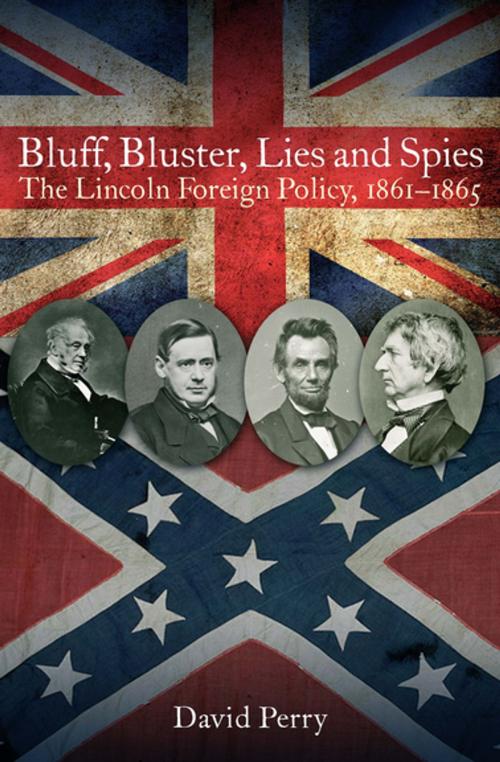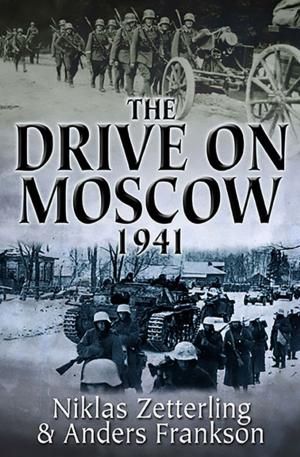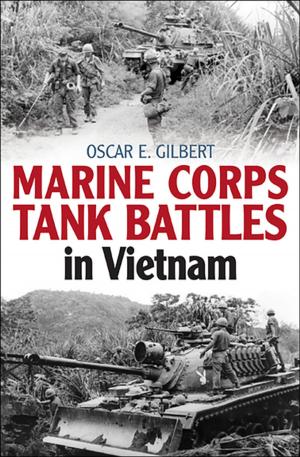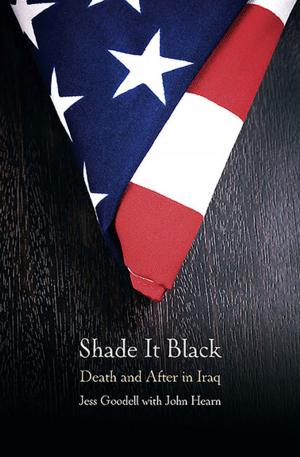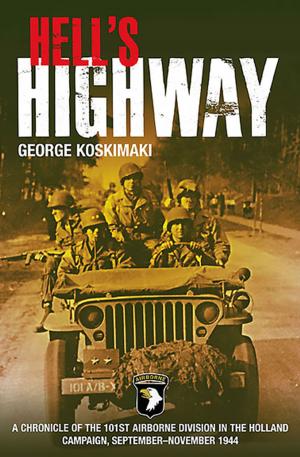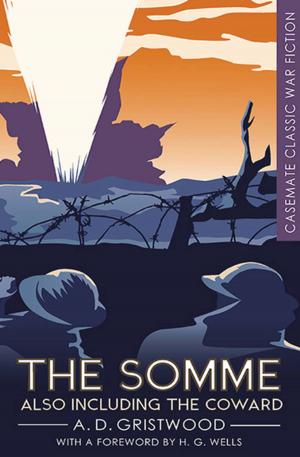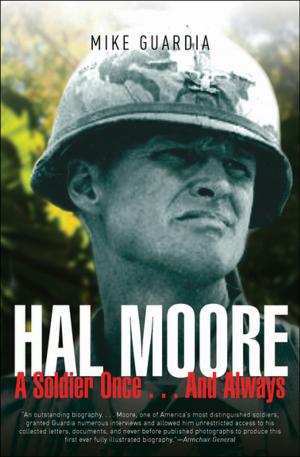Bluff, Bluster, Lies and Spies
The Lincoln Foreign Policy, 1861–1865
Nonfiction, History, Modern, 19th Century, Military, Strategy, Americas, United States, Civil War Period (1850-1877)| Author: | David Perry | ISBN: | 9781504040747 |
| Publisher: | Casemate Publishers | Publication: | August 16, 2016 |
| Imprint: | Casemate Publishers | Language: | English |
| Author: | David Perry |
| ISBN: | 9781504040747 |
| Publisher: | Casemate Publishers |
| Publication: | August 16, 2016 |
| Imprint: | Casemate Publishers |
| Language: | English |
An in-depth illustration of shifting Civil War alliances and strategies and of Great Britain’s behind-the-scenes role in America’s War Between the States.
In the early years of the Civil War, Southern arms won spectacular victories on the battlefield. But cooler heads in the Confederacy recognized the demographic and industrial weight pitted against them, and they counted on British intervention to even the scales and deny the United States victory. Fearful that Great Britain would recognize the Confederacy and provide the help that might have defeated the Union, the Lincoln administration was careful not to upset the greatest naval power on earth.
Bluff, Bluster, Lies and Spies takes history buffs into the mismanaged State Department of William Henry Seward in Washington, DC, and details the more skillful work of Lords Palmerston, Russell, and Lyons in the British Foreign Office. It explains how Great Britain’s safety and continued existence as an empire depended on maintaining an influence on American foreign policy and how the growth of the Union navy—particularly its new ironclad ships—rendered her a paper tiger who relied on deceit and bravado to preserve the illusion of international strength.
Britain had its own continental rivals—including France—and the question of whether a truncated United States was most advantageous to British interests was a vital question. Ultimately, Prime Minister Palmerston decided that Great Britain would be no match for a Union armada that could have seized British possessions throughout the Western Hemisphere, including Canada, and he frustrated any ambitions to break Lincoln’s blockade of the Confederacy.
Revealing a Europe full of spies and arms dealers who struggled to buy guns and of detectives and publicists who attempted to influence opinion on the continent about the validity of the Union or Confederate causes, David Perry describes how the Civil War in the New World was determined by Southern battlefield prowess, as the powers of the Old World declined to intervene in the American conflict.
An in-depth illustration of shifting Civil War alliances and strategies and of Great Britain’s behind-the-scenes role in America’s War Between the States.
In the early years of the Civil War, Southern arms won spectacular victories on the battlefield. But cooler heads in the Confederacy recognized the demographic and industrial weight pitted against them, and they counted on British intervention to even the scales and deny the United States victory. Fearful that Great Britain would recognize the Confederacy and provide the help that might have defeated the Union, the Lincoln administration was careful not to upset the greatest naval power on earth.
Bluff, Bluster, Lies and Spies takes history buffs into the mismanaged State Department of William Henry Seward in Washington, DC, and details the more skillful work of Lords Palmerston, Russell, and Lyons in the British Foreign Office. It explains how Great Britain’s safety and continued existence as an empire depended on maintaining an influence on American foreign policy and how the growth of the Union navy—particularly its new ironclad ships—rendered her a paper tiger who relied on deceit and bravado to preserve the illusion of international strength.
Britain had its own continental rivals—including France—and the question of whether a truncated United States was most advantageous to British interests was a vital question. Ultimately, Prime Minister Palmerston decided that Great Britain would be no match for a Union armada that could have seized British possessions throughout the Western Hemisphere, including Canada, and he frustrated any ambitions to break Lincoln’s blockade of the Confederacy.
Revealing a Europe full of spies and arms dealers who struggled to buy guns and of detectives and publicists who attempted to influence opinion on the continent about the validity of the Union or Confederate causes, David Perry describes how the Civil War in the New World was determined by Southern battlefield prowess, as the powers of the Old World declined to intervene in the American conflict.
